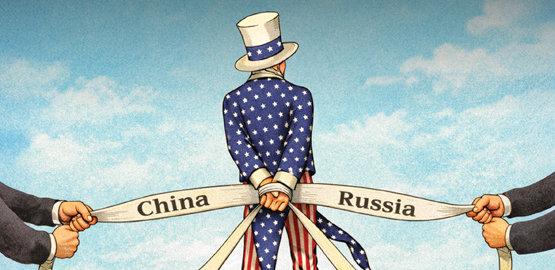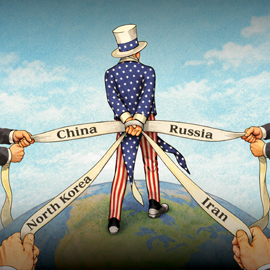WASHINGTON -- Japan is debating historic legislation that would allow its troops to cooperate with the U.S. military in far wider areas than has been possible in the post-war era. Why the drastic change in security policy? What do the two allies need to do to achieve the proposed law's aims?
To get some answers, the Nikkei Asian Review recently sat down with Jim Thomas, vice president and director of studies at the Center for Strategic and Budgetary Assessments in Washington D.C. He previously worked for the U.S. Department of Defense and led the 2005-2006 Quadrennial Defense Review as deputy assistant secretary.
Thomas says the two countries should consider ways to ensure U.S. forces in Japan will be able to continue performing their functions properly even after Japan is attacked. "Alliance managers should ... focus more on 'lower signature strike forces' to create a new 'forward presence' that may be less visible but is far more viable in an era of extended-range sensor-strike warfare," he said.

























